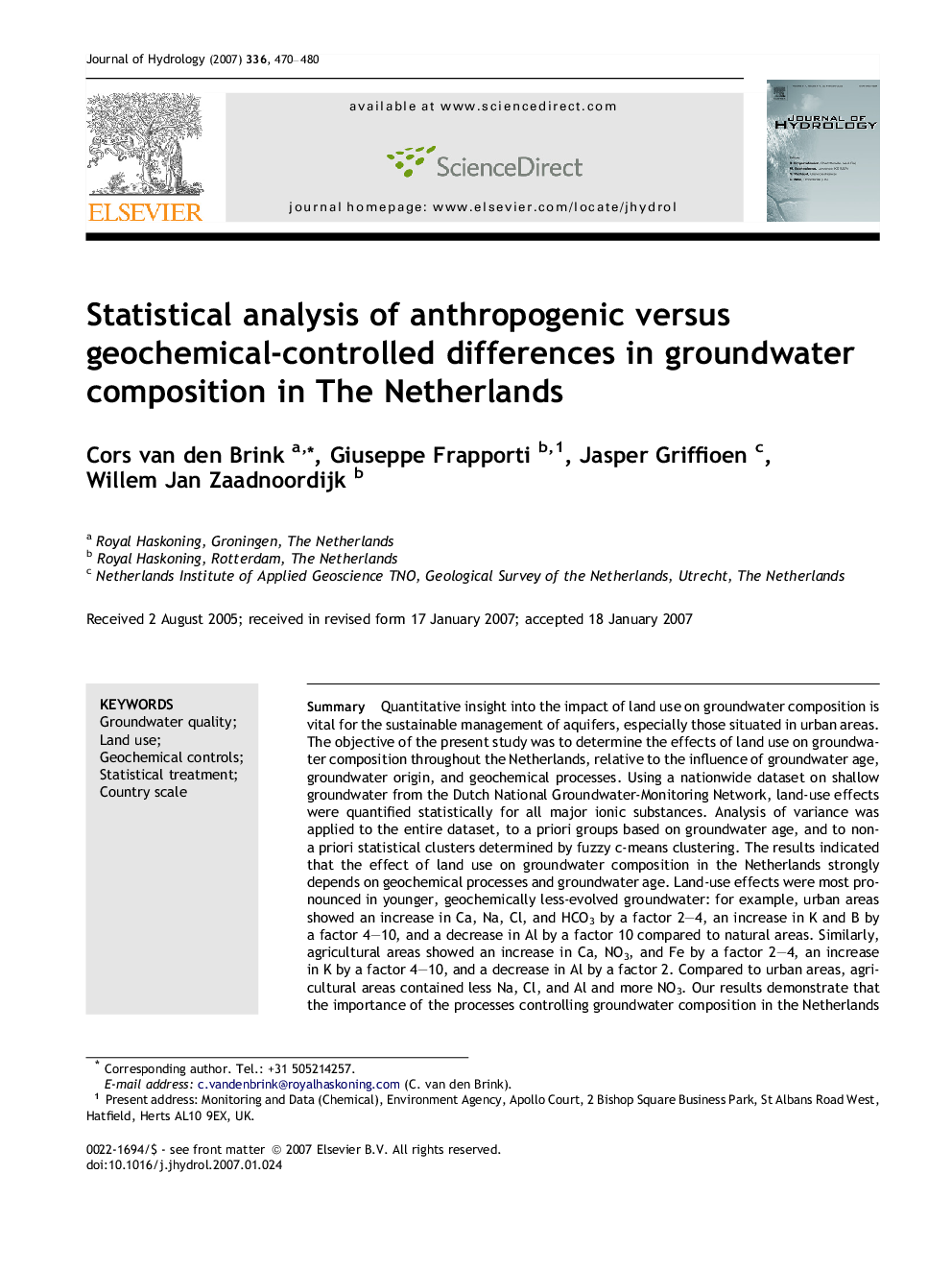| Article ID | Journal | Published Year | Pages | File Type |
|---|---|---|---|---|
| 4580071 | Journal of Hydrology | 2007 | 11 Pages |
SummaryQuantitative insight into the impact of land use on groundwater composition is vital for the sustainable management of aquifers, especially those situated in urban areas. The objective of the present study was to determine the effects of land use on groundwater composition throughout the Netherlands, relative to the influence of groundwater age, groundwater origin, and geochemical processes. Using a nationwide dataset on shallow groundwater from the Dutch National Groundwater-Monitoring Network, land-use effects were quantified statistically for all major ionic substances. Analysis of variance was applied to the entire dataset, to a priori groups based on groundwater age, and to non-a priori statistical clusters determined by fuzzy c-means clustering. The results indicated that the effect of land use on groundwater composition in the Netherlands strongly depends on geochemical processes and groundwater age. Land-use effects were most pronounced in younger, geochemically less-evolved groundwater: for example, urban areas showed an increase in Ca, Na, Cl, and HCO3 by a factor 2–4, an increase in K and B by a factor 4–10, and a decrease in Al by a factor 10 compared to natural areas. Similarly, agricultural areas showed an increase in Ca, NO3, and Fe by a factor 2–4, an increase in K by a factor 4–10, and a decrease in Al by a factor 2. Compared to urban areas, agricultural areas contained less Na, Cl, and Al and more NO3. Our results demonstrate that the importance of the processes controlling groundwater composition in the Netherlands is scale-dependent, with geochemical processes being more dominant on a national scale and land use on regional and local scales.
